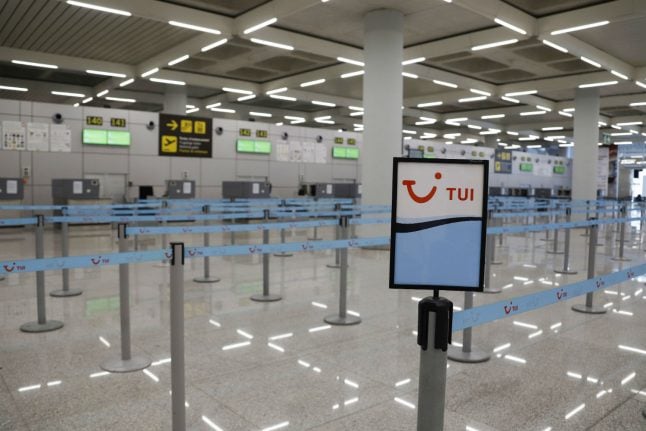In a press release, the group, which employs 70,000 people worldwide, said the move would affect its “package travel, cruises and hotel operations”.
Hanover-based TUI has a presence in over 100 countries and operates a host of airlines, cruise ships and hundreds of hotels.
READ ALSO: These are the countries banning or restricting travel from Germany
The firm was taking “substantial cost measures” to mitigate the effect on its earnings, adding that it would apply for state aid guarantees “to support the business until normal operations are resumed”.
It also said it was withdrawing its profit forecast for the current financial year.
Those who cancelled their booked trips with TUI should be given the chance to either receive a full refund, or re-book to a future date. This applies to all fares, and not just refundable or flexible ones.
Berlin on Friday promised “unlimited” credit to help companies hit by the coronavirus pandemic as part of postwar Germany's biggest help package worth at least €550 billion.
The package, even in its first stage, is bigger than the €500 billion help offered by the German government during the 2008 financial crisis.
For 2018-19, TUI reported net profit attributable to shareholders of €416 million ($462 million), down 42.8 percent on 2017-18.
With the virus infecting nearly every sector of the global economy, concerns are growing the world will be catapulted into a damaging recession, leading to stock markets enduring horror losses and wild swings.
READ ALSO: Germany unleashes biggest post-war aid package against coronavirus



 Please whitelist us to continue reading.
Please whitelist us to continue reading.
Member comments